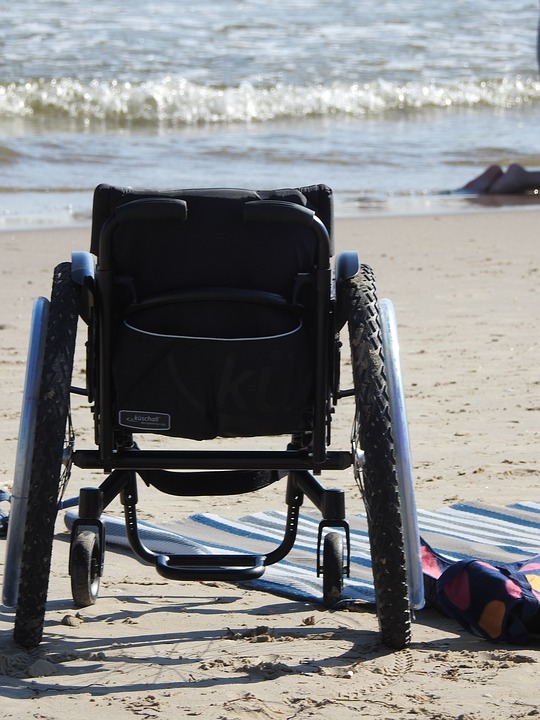Direct and personal access by each human being to the discovery of our planet’s wealth is an essential prerequisite for all citizens to be able to exercise their right to tourism.
Persons with disabilities and specific access requirements are increasingly calling for a place in tourism activities. In response, many actors in this sector are already committed to initiatives dedicated to adapting their products to different consumer profiles, in support of Tourism for All.
Much still remains to be done for universal accessibility to become a reality in the tourism sector, especially in developing countries and emerging destinations. A change in mindset and in the model for tourism services provision is necessary, not only to respect the human rights of persons with disabilities and their families, but also to meet a major market demand, which could significantly increase the competitiveness and growth of tourism destinations and businesses.
These convictions constitute the basis of the work of the World Tourism Organization (UNWTO) in the field of Accessible Tourism for All, and have materialized in a series of specific actions with the signing of a trilateral framework agreement in 2011 with the ONCE [Spanish National Organization of the Blind] Foundation for the Social Inclusion of Persons with Disabilities and the European Network for Accessible Tourism (ENAT).
Following the “UNWTO Recommendations on Accessible Tourism for All”, adopted by the UNWTO General Assembly in 2013, the three partners have maintained their commitment to work together to promote universal accessibility through the publication now of a highly comprehensive technical manual.
This manual will be a key tool for the international community to understand the accessibility chain in tourism, the economic impact of accessible tourism, and the steps to follow in order to create accessible destinations in accordance with the Design for All principles.
The crucial components of this work are the long-standing experience – both in awareness raising and technical know-how and in business development – of the ONCE Foundation and ENAT, as well as the UNWTO’s role in the global dissemination of the principles of tourism that is sustainable, responsible and accessible for all.
People with disabilities enjoy vacation getaways as much as anyone else. But when you have a disability, you tend to have more questions and do more pre-planning before you travel. Long before you pack your bags, board your flight or check into your hotel room, you’re gathering information.
*From The Manual on Accessible Tourism for All
Direct and personal access by each human being to the discovery of our planet’s wealth is an essential prerequisite for all citizens to be able to exercise their right to tourism.
Persons with disabilities and specific access requirements are increasingly calling for a place in tourism activities. In response, many actors in this sector are already committed to initiatives dedicated to adapting their products to different consumer profiles, in support of Tourism for All.

Much still remains to be done for universal accessibility to become a reality in the tourism sector, especially in developing countries and emerging destinations. A change in mindset and in the model for tourism services provision is necessary, not only to respect the human rights of persons with disabilities and their families, but also to meet a major market demand, which could significantly increase the competitiveness and growth of tourism destinations and businesses.
These convictions constitute the basis of the work of the World Tourism Organization (UNWTO) in the field of Accessible Tourism for All, and have materialized in a series of specific actions with the signing of a trilateral framework agreement in 2011 with the ONCE [Spanish National Organization of the Blind] Foundation for the Social Inclusion of Persons with Disabilities and the European Network for Accessible Tourism (ENAT).
Following the “UNWTO Recommendations on Accessible Tourism for All”, adopted by the UNWTO General Assembly in 2013, the three partners have maintained their commitment to work together to promote universal accessibility through the publication now of a highly comprehensive technical manual.
This manual will be a key tool for the international community to understand the accessibility chain in tourism, the economic impact of accessible tourism, and the steps to follow in order to create accessible destinations in accordance with the Design for All principles.
The crucial components of this work are the long-standing experience – both in awareness raising and technical know-how and in business development – of the ONCE Foundation and ENAT, as well as the UNWTO’s role in the global dissemination of the principles of tourism that is sustainable, responsible and accessible for all.
People with disabilities enjoy vacation getaways as much as anyone else. But when you have a disability, you tend to have more questions and do more pre-planning before you travel. Long before you pack your bags, board your flight or check into your hotel room, you’re gathering information.
*From The Manual on Accessible Tourism for All

